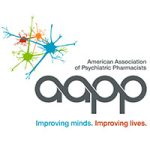Crisis Resources For Suicide Prevention
- 24/7 Crisis Hotline: 988 Suicide & Crisis Lifeline
- Call 988
- Text 988
- Chat 988lifeline.org/chat
- 24/7 Crisis Text Line
- Text HOME to 741-741
- Veterans Crisis Line
- For veterans, active duty military & their family members
- Call 988, option 1
- Text 838-255
- 24/7 Trevor Project Suicide Hotline
- For LGBTQ+ Youth
- Text Start to 678-678
- Call 866-488-7386
- Chat https://www.thetrevorproject.org/get-help/
- Go to your nearest local hospital, emergency department, or urgent care center
- If a life-threatening crisis is underway (such as a suicide attempt in progress), call 911.


